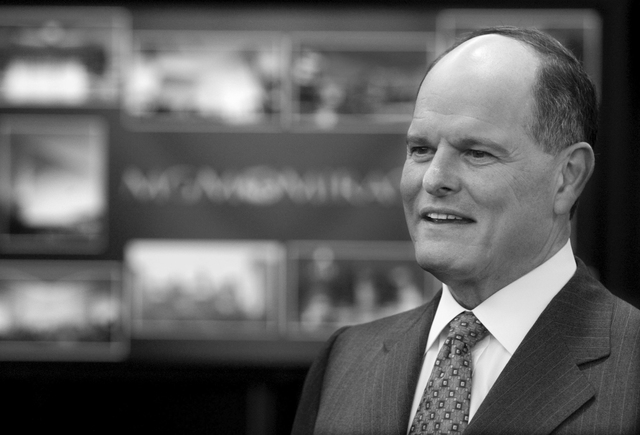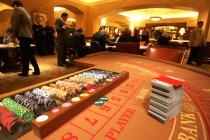Major U.S. cities — Baltimore, Philadelphia, Detroit, Boston — have used tax dollars associated with gaming, or are considering gaming itself, as a means of economic development.
Business Columns
Just as the recession began to grip Las Vegas in 2008, gaming executive Terry Lanni made a prediction.
Anytime the investment community gets downwind of a potential hiccup in the Macau gaming market, a slash-and-burn mentality sets in.
The investment community long has expressed concern over the growing debt that weighs down many casino companies, most notably the $21 billion anchor around the neck of Caesars Entertainment Corp.
The next phase of Las Vegas begins today in the Grant Sawyer Building when nearly a dozen representatives and executives from Genting Berhad, the Malaysia-based company that acquired the unfinished Echelon project on the Strip for $350 million 14 months ago, will face questions from the Gaming Control Board.
Remember the photo from the 2012 Summer Olympics of U.S. gymnast McKayla Maroney, standing on the medal podium after taking silver in the vault finals, arms crossed, lips pursed to the side, with a look of disappointment? The investment community might give giant International Game Technology the same disdainful look.
There is a reason analysts spent about 40 minutes questioning Las Vegas Sands Corp. officials last week about the company’s results in Macau. More than half of the company’s quarterly revenue came from its Macau resorts.
Bills for and against Internet gaming continue to surface in statehouses and Congress, which means more billable hours for the lobbying sector. But so far, the return on investment for casino operators hasn’t been the billion-dollar windfall some predicted.
The ink was hardly dry on lottery giant Scientific Games Corp.’s $1.5 billion buyout of slot machine manufacturer WMS Industries when the corporate management team was shaken up with a new CEO and chairman in November. An even larger transition could come later this year.
Harsh winter weatheres kept casino patrons at home in several states where companies such as Penn National Gaming, Isle of Capri Casinos, Pinnacle Entertainment and Boyd Gaming Corp. derive the bulk of their quarterly revenue.
Word is that the U.S. Treasury Department may soon require the casino industry to report the source of gambling funds used by their big spending high-rollers. The move is part of a stepped-up federal effort to crack down on money laundering.
The Salt River-Pima Indian Community has a real estate footprint in this city, 20 minutes east of downtown Phoenix, that makes the 67-acre CityCenter look like a strip mall.
You have to hand it to online gaming giant PokerStars.
There is a target on the back of slot machine manufacturer International Game Technology. Despite first-quarter results that were well received by investors, at least two analysts raised concerns in recent weeks that IGT could be bleeding away slot machine market share to the competition.
Million-dollar fines for violating Nevada gaming law used to be rare.


















